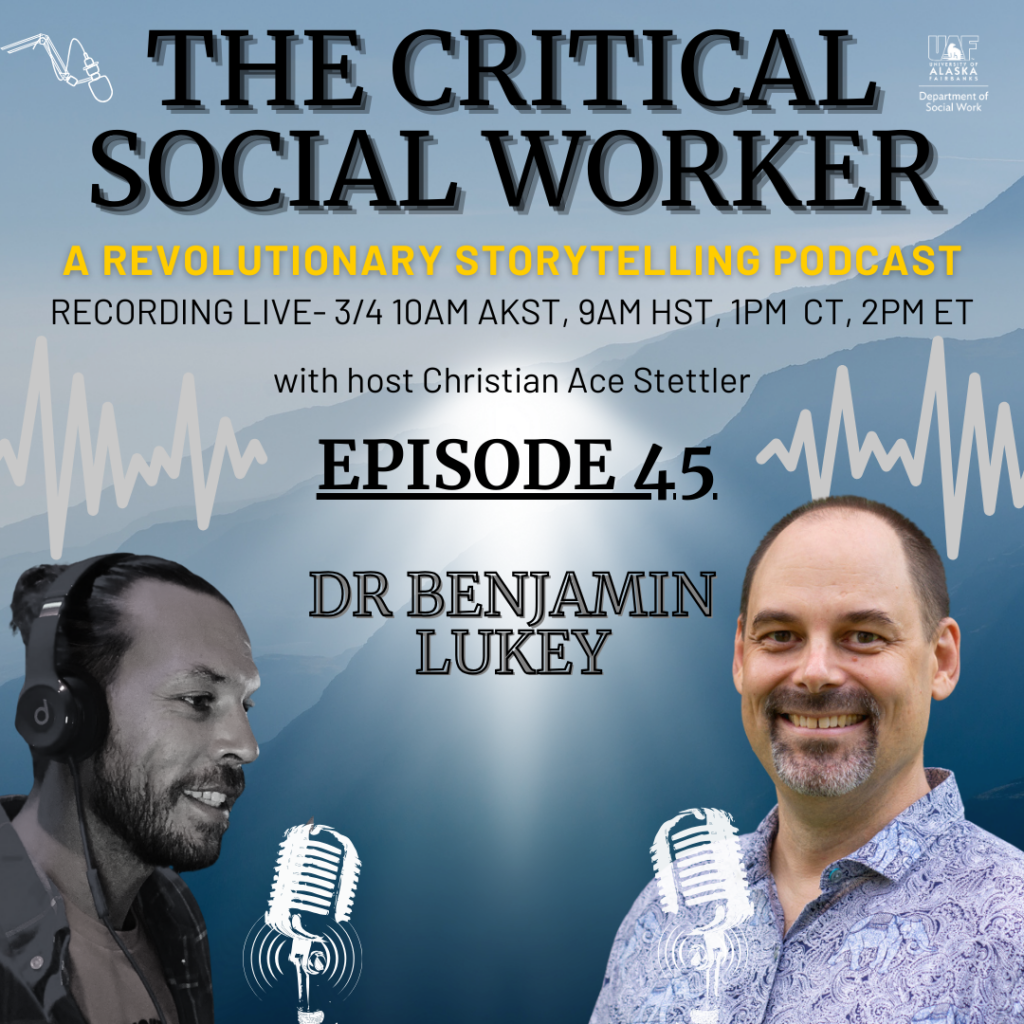
Dr. Benjamin Lukey is a Philosophy Associate Professor at UH of Manoa. On top of being a professor, he spends three days a week in public schools facilitating dialogue groups for the organization Philosophy for Children (P4C) (if you have time, I’ve included a youtube video about what P4C is all about). The process of P for C facilitating groups always starts with forming a circle with the kids and having a community ball. The students then pass the ball and can talk about whatever they’d like, but only the person with the ball talks. On a deeper level, the process involves community, inquiry, philosophy, and reflection. What Dr. Ben describes is powerful; two kids who are in opposite social groups, who would normally never speak, can come together in these circles, and find commonality. Professor Stettler called this shared humanity.
What stood out to me during the conversation between Dr. Ben and Professor Stettler, was the importance of the environment when it comes to group thinking and open dialogue. Group thinking as Dr. Ben described is when people can have conversations without being defensive and can rather build off each other’s ideas. Dr. Ben continued that the environment can’t be rushed and creates a space where dialogue can unfold naturally. This made me reflect on the environments in which I feel open to sharing and collaborating with others. It’s in environments that people are accepting and listen, without taking over the whole conversation.
The wheels in my head started turning when public education was labeled as dehumanizing. My thoughts included, “What does that look like?” “Is this why I struggled to fully connect with others and share until fairly recently?” Merriam-Webster definition of dehumanizing is to deprive (someone or something) of human qualities, personality, or dignity. According to the European Center for Populism Studies, “Every act or thought that treats a person as less than human is an act of dehumanization.” I couldn’t agree with Dr. Ben and Professor Stettler more; our current public education system dehumanizes children. It’s motivating to learn about programs such as P4C that are planting the seeds in children that their voices, ideas, and humanness, matter.
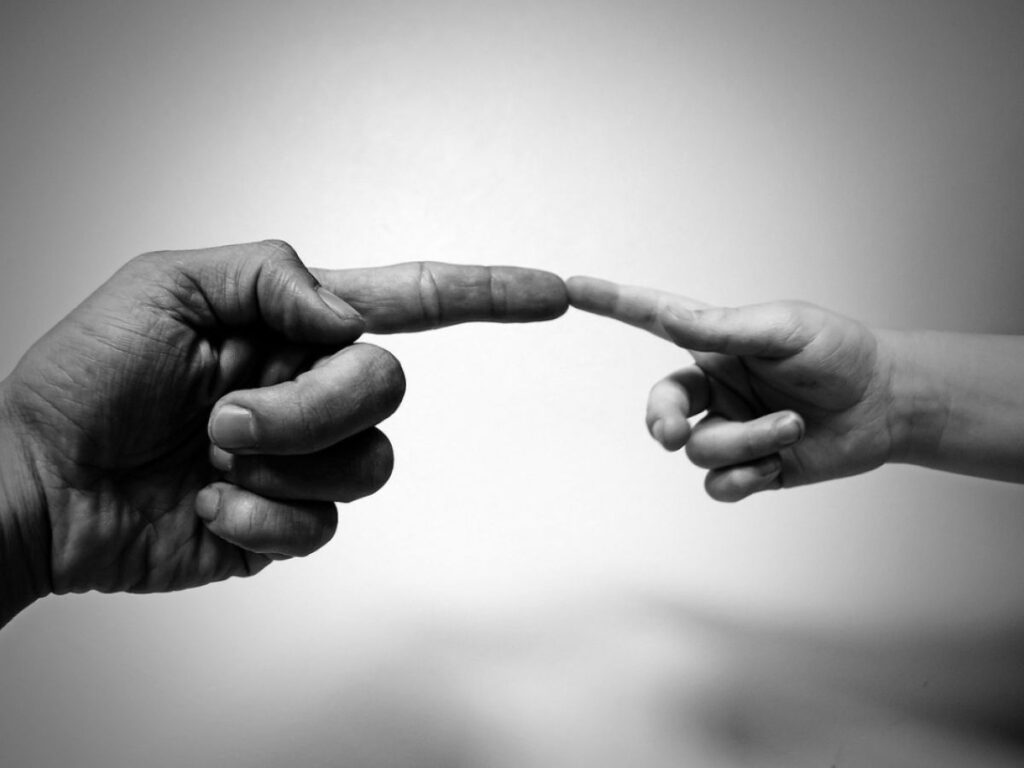
The idea of having an environment that creates wonder, curiosity, and respect is something that all humans need when they are involved in dialogue; it comes down to the core need to be seen and heard. As a child, I was pushed through the elementary public school system and there wasn’t space for kids to speak outside of the topic chosen by the teacher. Creativity wasn’t encouraged, and neither was speaking your ideas. For the longest time, I never opened up in dialogue and felt I didn’t have the confidence or knowledge to participate in certain conversations. However, I now know that’s not true, but I think that mindset came from an early age being discouraged by educators to express myself. Listening to this conversation made me realize that as a parent, this is something I can provide for my children at home. Giving them the space to express their thoughts, ideas, and model curiosity.
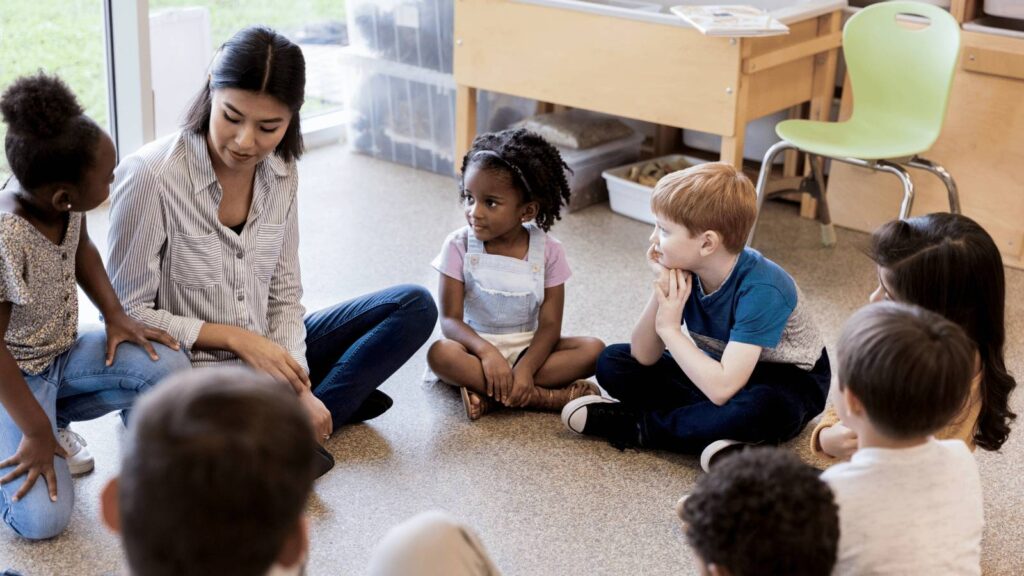
The first time I felt heard, was in my 9th grade health class. Our teacher, Nancy, was wonderful; she’s an amazing human being, truly. She facilitated “Feelings Friday”, which essentially was a talking circle. We had a talking stick, and everyone got to go around the room and share whatever was on their minds. The first few talking circles were silent, but by the end of the semester, everyone wanted to share. It was a powerful practice and something that I think should be utilized in all classrooms. It makes me wonder if I would’ve been open to sharing and participating in conversations as a young adult if I had been exposed to a practice such as Feelings Friday, as a young child. As Dr. Lukey mentioned, kids exposed to this type of dialogue, are more willing to share relevant stories and beliefs. They are open to communication, listening, and trying to understand what others are trying to communicate. In short, you could see children display more empathy and practice critical thinking, more so than kids who don’t participate in talking circles.
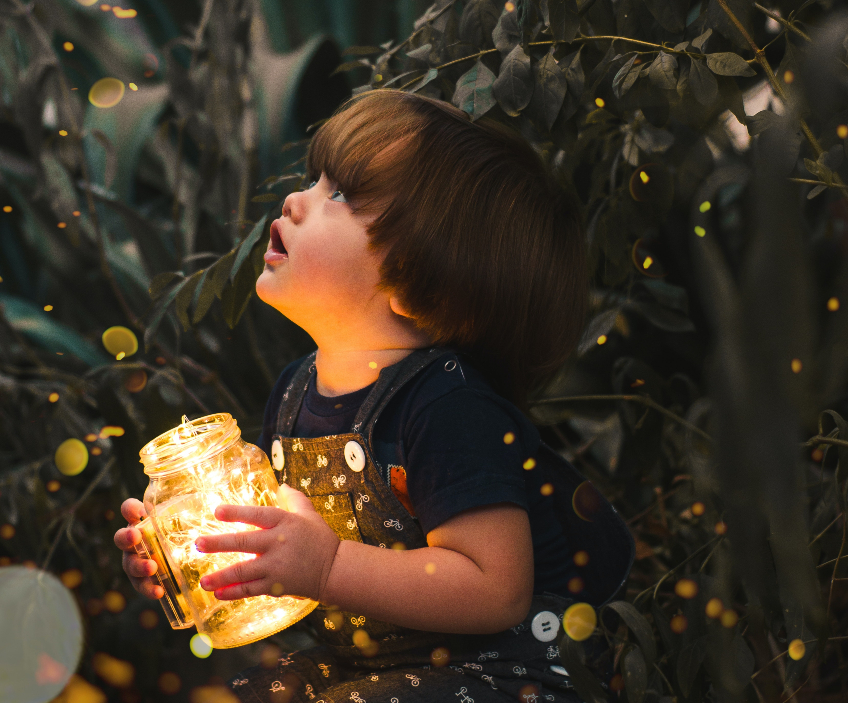
All of this leads me to something personal that I’ve noticed recently. As a newish mother (my twins turn 2 on Monday) I’ve noticed that society tends to keep children “small”. Why? I’m not sure. Is it a power thing? Curious what your thoughts are. Anyhow, I get eye rolls the second we walk into a restaurant, even if they are “well-behaved”. Pretty early on, I took the stance that kids deserve to be in restaurants, planes, airports, and public spaces just as much as we do. After listening to this podcast episode, I realized that it’s not just public education that dehumanizes children, it’s society as a whole. I’ve also witnessed childcare providers dehumanize young toddlers in public spaces and starve them of connection, it starts so young. To end my rant, I would love to hear if anyone has taken different routes with schooling their kids or if you were schooled in an untraditional setting. Examples: homeschooling, small group homeschooling, Charter schools, Montessori, Waldorf, etc. If public school is the only option for families, how can we as future social workers advocate for healthy practices such as P4C in our schools?
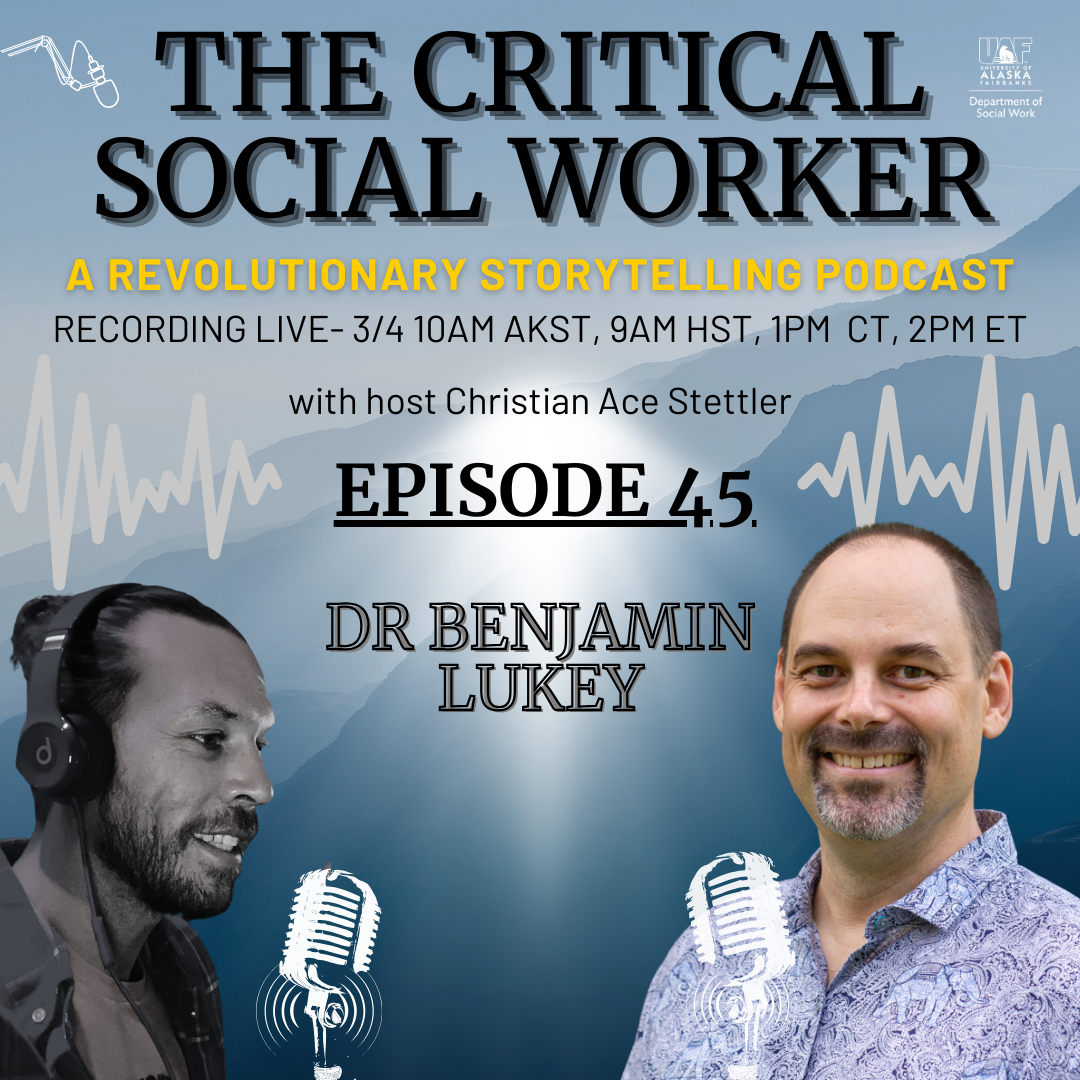
Comments
10 responses to “Podcast: Dr. Benjamin Lukey”
Hi Alexa, Dr. Benjamin Lukey’s involvement with Philosophy for Children (P4C) is an example of a remarkable dedication to fostering open dialogue and critical thinking among young minds. The discussion between Dr. Lukey and Professor Stettler really see the pivotal role of the environment in nurturing group thinking and constructive dialogue. I agree that the absence of defensiveness and the presence of acceptance in such settings enable ideas to flourish organically.
Hi Rodric,
It sounds like you got a lot out of the podcast episode as well – I’m so glad! I agree, that Dr. Lukey’s dedication to fostering dialogue is remarkable and that we need more people like him in our educational system.
Hi Alexa!
I also reflected on this podcast, and I chose to focus on P4C mostly. But wow, I appreciate your reflection so much! This was incredibly thorough. I did not think much about how environment plays out in these learning environments. (Although our class being about environment – I should have Lol)
I really enjoyed reading this blog. I felt like I watched the video from a different perspective, than my own. Which is super important. I agree with you on how public education is dehumanizing, and I think that p4c is an incredible way to sort of undo the robot like thinking we are taught in public education. When researching p4c I found myself really wishing that I was able to be apart of something like this growing up. I think I would have learned far sooner that my own opinions matter, and how to respectively discuss them with people around me.
Hi Kaia,
I love that you focused on P4C – the organization seems incredible and I hope something like that develops in Juneau! It’s crazy how much our educational environment shapes us, something I wasn’t aware of until recently. Like you, I wish P4C had been available to me as a young child. I still catch myself subconsciously thinking my opinions don’t matter and trying to avoid difficult conversations.
Hi Alexa.
I really enjoyed your blog post. I liked how you were able to relate to the importance of talking groups, as you mentioned your experience in the 9th grade. I find talking groups or talking circles very intense, but also very helpful. I learned about the importance of talking circles in my early classes of Social Work. My professor, Mr. Jesse, mentioned it to us. We had about 3 talking circles in the course, and at first I thought it was not helpful and was only an “ice breaker” type of activity.
I remember feeling so grateful that we had multiple activities on it. It allowed me to share things that I have never shared with anyone, and I appreciate it a lot. It allowed me to get things off my chest, and even though I broke down multiple times in front of about 15 random people who I only see during that class, it helped me a lot.
Great sharing!
Hi Carmen,
Thank you for sharing your experience with talking circles! Your comment made me remember, that I also thought my classroom talking circle was an icebreaker. I’m so glad that you found the practice healing and that you were open to sharing! Like you, I found it to be very healing to have a chance to share while feeling heard without judgment.
Hi Alexa. Your blog brings up some very important topics deserving of deeper discussion. I believe that as parents and social workers, we must observe our current ways of being both in terms of the collective society and as individuals. I appreciate how there is a lot more emphasis nowadays when it comes to fostering a non-judgmental environment for our children. Some debate the nature of how the learning environment is nowadays, however. Meaning subject material in class, and, what is appropriate versus what is not. Christian made the comment along the lines of how culture is connected to more than just race and even religion. The dynamics of culture stem beyond the scope of our current understanding. There are different aspects of culture like art, music, language, food, daily life, clothing, and religion to name a few. These aspects of culture show us that culture is dynamic, flexible, and adaptive.
Hi Monique,
Thank you for taking the time to read my blog! You bring up great points and I agree, that social workers and parents must reflect regularly as individuals and in terms of collective society.
Best,
Alexa
Hi Alexa,
I am so glad that you did this blog. I have worries and concerns on being able to have that open dialogue with the kids too. Mom of 3 wonderful little ones, and bonus mom to one smart little cookie. I was homeschooled all my life. I struggled with understanding social cues, being able to build and keep relationships, and to stand up to authorities. The only interactions I had was at church but my hair was to long or I was to weird to keep friends. This is part of the reason why I decided that I did not want my kids to be homeschooled. I wanted them to be themselves. I have found that having ways for kids to show who they are is important. It is why my daughter has colored hair. It was like a night and day transformation. It helped so much at school. I did have to first make sure that she could have colored hair. Soon enough, she’ll be going to middle school. I am worried that she won’t be able to keep her hair colored. Dr. Lukey did have a good point in finding another outlit. There is more than one way to do something.
As for what we can do as social workers, if we can’t get the school to change their minds, we need to work on what we can do. Having extra curricular activities that allow for that conversations/exploration is needed. Kids need a chance to try new things. They need a chance to experience it. We can also work on having summer camps that allow for different experiences as well.
Hi Ana,
Thank you for sharing your educational experience! Also, I appreciated the questions that you asked Dr. Lukey during the podcast.
I think that’s amazing that you empower your daughter to be who she is and allow her to choose how she expresses herself! That’s a great piece of advice that I will remember as I continue down my parenting journey. It’s incredibly important for children to be seen and feel accepted by their parents, that’s how they learn to accept themselves – you’re doing a great job!
Your ideas regarding what social workers can do are solid – I would never thought of summer camps or extracurricular activities, but what a great way to reach kids outside of the classroom.